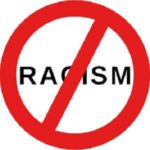 By: Loyd Willaford and Clive Pontusson
By: Loyd Willaford and Clive Pontusson
In Cobsy v. City of Indianapolis, a federal court dismissed the lawsuit of a police officer who claimed that his repeated discipline was motivated by racial bias in the Indianapolis Police Department. Because Officer Cosby did not present evidence that his multiple suspensions were related to his race, he could not state a claim for racial discrimination.
Richard Cosby had been an Officer in Indianapolis since 2000. He was an African American. He was suspended multiple times for performance issues in: 2002, 2014, 2015, 2016 and 2017. He was also assigned to counseling sessions and put on performance improvement plans. He received negative performance reviews. It was clear that he had difficulties with his superior. At one point, a supervisor said, “I heard about you and I will be keeping my eyes on you.” A Commander said that, “he should be ashamed of his productivity.” Officer Cosby strongly believed he was being singled out for discipline because of his race.
Cosby filed a lawsuit under Title VII, which makes employment discrimination on the basis of race unlawful. In addition to the discipline he received and the hostile remarks from supervisors, Cosby stated that he was unware of any white officers being disciplined for similar conduct, and he was aware of two African American officers who had received similar discipline. On this basis, Cosby argued that his multiple disciplines were motivated by racial bias.
Not surprisingly, the City of Indianapolis disagreed with Cosby. It argued that the comments Cosby pointed (“I will be keeping my eyes on you”) did not have any racial element, and Cosby had not otherwise shown any connection between his discipline record and his race. In a more practical sense, the City argued that Cosby’s evidence was lacking—the only evidence he provided were his own statements about the Police Department, and many of these statements were about things that Cosby did have personal knowledge of; as a result, the evidence would not be admissible in court.
The Court agreed with the City of Indianapolis. As to the statements Cosby pointed to, the Court concluded that:
Cosby’s effort… suffers from a complete lack of evidentiary support. For starters, the two comments to which Officer Cosby points do not evince any discriminatory animus. Sergeant Wilson’s comment, “I heard about you and I will be keeping my eyes on you,” and Captain Turner’s comment that Officer Cosby needed to find another job do not suggest that they were punishing Officer Cosby because of his race, nor does Officer Cosby provide any context that would lend itself to such an inference.
These statements, without more, did not provide evidence of racial bias. Since Cosby did not provide any “connection” between the alleged bias and his suspensions, that part of his argument failed as well:
Officer Cosby also fails to demonstrate that he was selectively disciplined for actions for which white officers were not held accountable. The only evidence he offers to support this assertion are statements that he was “not aware of any white officers being suspended” and his belief that he was “closely scrutinized” and “treated differently than the white officers were.”
Finally, the Court offered something of a suggestion about what Cosby should have done:
If Officer Cosby believed that a comparator engaged in conduct similar to his, it was incumbent upon him to procure admissible evidence through discovery regarding that comparator and then offer that evidence to support the comparison. It appears that Officer Cosby either chose not to do so, as no depositions, interrogatory answers, or documents produced by IMPD were submitted with his response, or his discovery revealed no such comparator.
Since Cosby failed to provide any real evidence of comparable officers or racial bias, his lawsuit was dismissed in its entirety.
This case illustrates the importance of presenting evidence in discrimination cases beyond the mere allegations of the person making the complaint. As the Court points out, “feeling” discriminated against is not enough for a jury to infer actual discrimination. Here, Officer Cosby made some allegations that might support an inference of discrimination such as white officers being treated better, or black officers treated the same as Cosby. However, Cosby offers no proof beyond his own mere allegation for these claims. This proof might have consisted of discipline records or statements by people other than Cosby supporting his specific claims. Without this independent, at least indirect evidence of discrimination, Cosby did not have enough evidence to get to a jury.
**Visit our Premium Website for more information on Race Discrimination **



